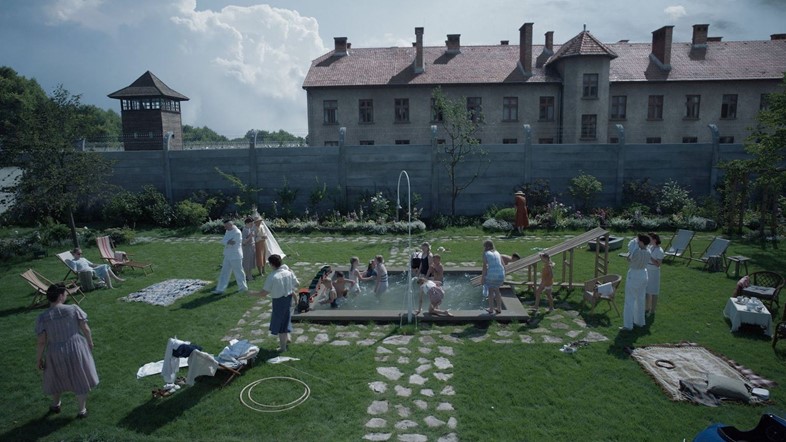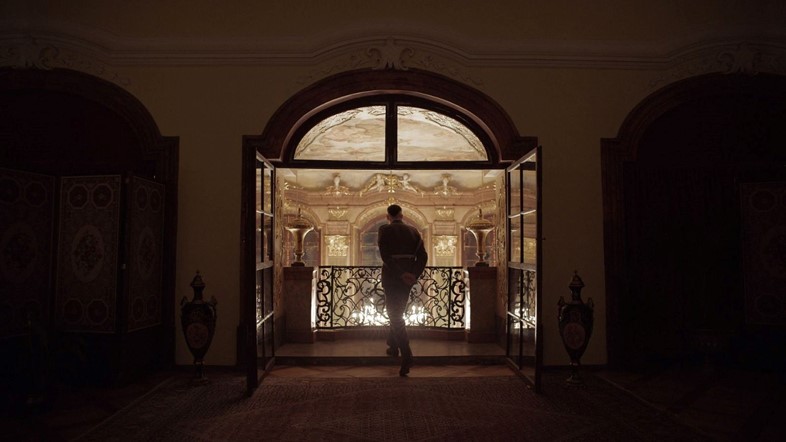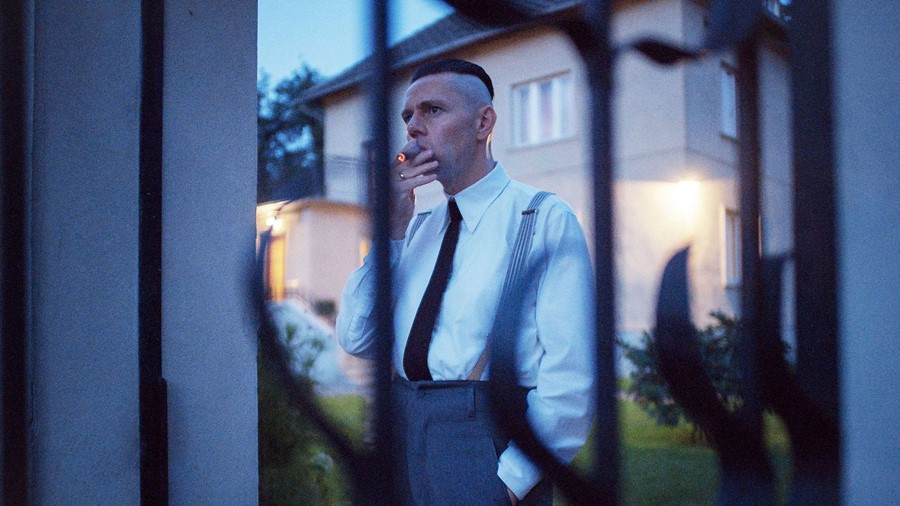As Jonathan Glazer’s Auschwitz drama is released, German actor Christian Friedel talks about bringing history’s most prolific mass murderer to the screen
Amid the cut-and-thrust of this year’s awards-season campaigning, there’s one name that’s been lost in the mix. Christian Friedel is the 44-year-old actor tasked with playing Rudolf Höss, the man responsible for the murder of two million people as a key architect of the Holocaust, in Jonathan Glazer’s Oscar-nominated Auschwitz drama The Zone of Interest.
It’s a chilling performance, but not for the reasons you might think. “It was important to Jonathan that I’m not a typical actor asking to play this brutal character,” says Friedel, “because he was searching for softness. If you watch the movie, you cannot say, ‘Oh, this is an evil person,’ [except] through the work he’s doing.” Part of that is in keeping with what we know of the man: according to Friedel, a journalist who interviewed Höss before his trial at Nuremberg described him as “very ordinary, almost like a schoolteacher in a way”. But it’s also a tactic employed by Glazer, whose ruthlessly delineated vision leaves no room for theatrics.
Freely adapted from Martin Amis’s novel of the same name, The Zone of Interest is an audacious attempt at dramatising Holocaust historian Hannah Arendt’s insight into the banality of evil. It depicts, in mundane detail, the everyday lives of the Höss family at their home not 50 yards from the crematoria at Auschwitz extermination camp, while a diabolical chorus of sounds – gunshots, screams, trains bringing people into the camp – plays out in the background. The sounds were added in post-production so the cast wouldn’t react on set, reflecting these characters’ ability to tune out the industrial-scale murder happening at the end of their lawn.

“I have to say that what we are saying in the movie is not so important,” says Friedel, a self-effacing presence light years removed from your average leading man. A musician and theatre performer who’s found success on the small screen of late with Babylon Berlin, he lives in Dresden where his band, Woods of Birnam, have a recording studio. “Jonathan always talked about movie one, the movie you see, and movie two, the movie you hear. It’s more about what the audience are not seeing, what they hear behind our lines.”
Friedel was cast in the role after Glazer saw him in The White Ribbon, Michel Haneke’s unnerving drama about the seeds of Nazism in early 20th-century Germany. He was invited to submit a tape recounting his upbringing in Magdeburg, East Germany, and why he’d wanted to become an actor in the first place. Friedel instinctively felt what Glazer was looking for, and the pair met in a London pub where the director explained his vision for the film.
“Jonathan has worked with actors and non-actors before; he likes to combine these two worlds to find reality,” says Friedel. “When he asked me to do the tape I felt he was searching for an actor who was … not boring, exactly – I hope he doesn’t think I’m boring! – but someone who is capable of being ‘normal’ in a way.” That’s Friedel’s Höss in a nutshell: a career-minded family man so nondescript it’s like he’s not even there at all. When he calls home from a party with Nazi high command in Berlin, he confesses to his wife that he spent the evening thinking about how to effectively gas the room. It’s like he’s telling her he misses her.

Friedel’s co-star in the film, Sandra Hüller, had sworn never to play a Nazi before Glazer coaxed her into the role of Höss’s wife, Hedwig. Friedel had no such reservations about boarding the project, despite having turned down offers to play Nazis in the past. “I had no doubts; I was too curious,” he says. “I’d had offers to play Nazis before and I’d always said no, because I felt the traps to create a cliche [were too strong]. I once had an offer to play Adolf Hitler and I just couldn’t imagine it, because the first question is always why and the second question is how? But here it made sense. Because Jonathan invited us to create interpretations, not to do a biopic or something.”
To prepare for the role, Friedel watched old newsreel footage of Höss at Nuremberg, where he was sentenced to death for his crimes, and read the memoirs he wrote while awaiting trial. “I read his book but in the end I don’t know if it was necessary,” he explains. “It was more important to find [the truth in] the contrast between this high, soft voice and the photos of Höss in his prime with his gestures and the uniform. Was he pretending to be someone else? Did the system and this work allow him to think he was someone bigger?”
The weekend before we speak, Germany’s streets are filled with protesters outraged by the news that the far-right Alternative für Deutschland (AfD) party, now riding high in the polls, attended secret meetings with neo-Nazis to discuss the mass deportation of migrants from the country. Friedel expresses pride that his film enters the political discourse at such a moment, though he’s keen to stress its message extends well beyond the country’s borders. “You just feel like, ‘Oh my God, history is repeating itself’, and always history repeats, but I’m proud that so many people are on the streets right now,” he says. “In Germany all of us have a voice. We can elect whomever we like in our system, but we cannot ignore that if we elect this party [AfD] they want to change that system.”
As the spectre of fascism returns to Europe, the poison of groups like the AfD is infecting the political mainstream. That poison surfaces in the closing moments of The Zone of Interest, with a scene where Höss feels suddenly nauseous then ambitious, in a Kubrickian cut that demolishes the ironic distance at the core of Glazer’s film. “I was so afraid to do this scene because I was searching for the right body language, and the body always tells the truth,” says Friedel. “It’s a genius cut, I have to say, because you’re thinking, ‘Is he realising what he’s doing?’ And then he goes back to work; he goes back into the darkness.” For Friedel, committed and unflashy as one of history’s most ghoulish figures, it’s a film that implores us not to follow.
The Zone of Interest is out in UK cinemas now.
